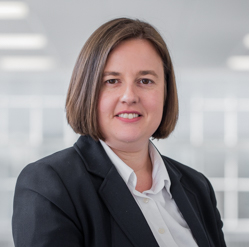Fri, 17 Feb 2023
After Crown Courts ended 2022 with more than 61,000 outstanding serious crime cases, the Justice Secretary, Dominic Raab has announced that 24 Nightingale Courts will remain open for the remainder of this year. No5's Michelle Heeley KC explains why this cannot solve the backlog if there is no one to work in them.
As the criminal court backlog in the UK grows more by the day, extending the use of Nightingale Courts provides some help to getting more cases through. However, this short-term does not address the cumulative effect of a lack of recruitment to the Criminal Bar, the loss of barristers to other areas of law and court closures over the years.
The impact we are seeing on both victims and the accused following these delays has been catastrophic. During the agonising waiting time to go to court, there is significant pressure on all parties. Victims are left without justice and witness memories begin to fade, which can have serious repercussions when they are called to testify. My concern is that people will completely lose faith in our broken justice system, put off pursuing justice in highly traumatic and sensitive cases because it could take years to reach court.
The solution is not a short-term one. We must recruit more barristers and judges to the Criminal Bar and recognise that working in this area of law is tough. For barristers and judges who are currently overworked and taking on cases, greater support is needed to avoid them leaving the Criminal Bar and worsening the crisis.
Further efficiency measures could also be put in place to help tackle the court backlog. If barristers – who currently need to work across multiple courts around the country – were able to remotely attend hearings, it would reduce time spent travelling or postponing trials when people cannot make the journey. Better communication between the Crown Prosecution Service, the court service, barristers’ chambers, solicitors and the prison service would also go some way to avoiding postponed cases due to poor planning.
We cannot afford a situation where the public lose faith in the judicial system and so we must address the long-term issues for us to be able to deliver justice for victims and the accused.
Michelle also featured on Times Radio on Friday morning. Listen to the full interview here. (Listen from 02:46:30)



